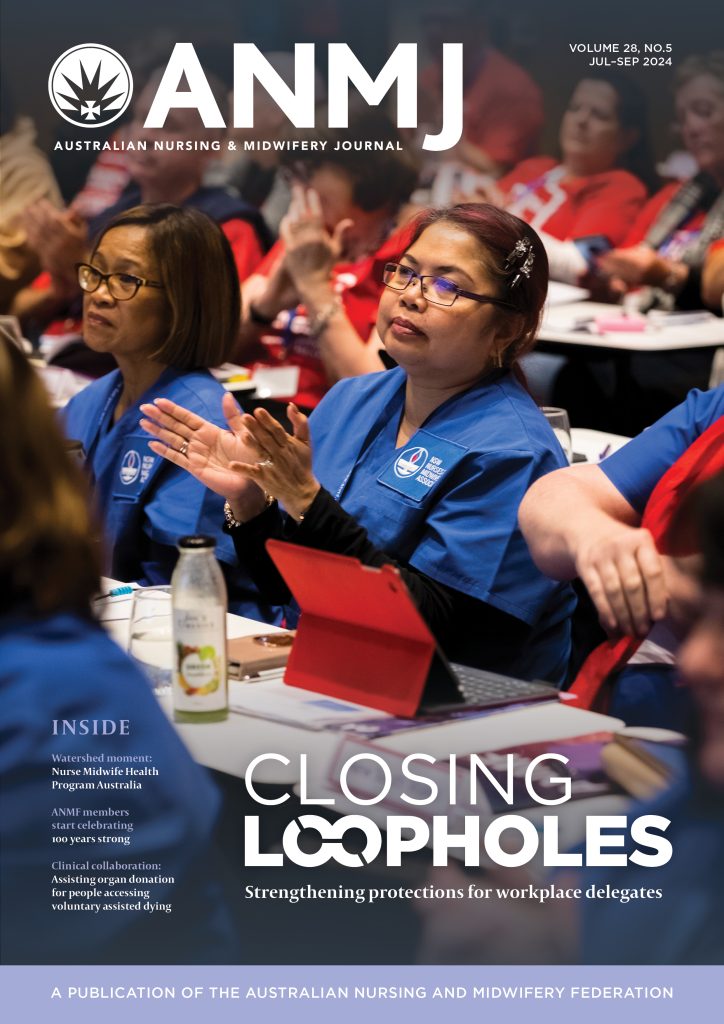In December 2022, the Fair Work Act was amended to add two new objectives that need to be taken into account when deciding if awards meet the standard required of contemporary industrial relations.
The new matters that the Fair Work Commission (FWC) must consider are whether provisions of awards improve access to secure work and achieve gender equality.
As a result of these changes, the Minister for Employment, the Hon Tony Burke asked the FWC to conduct a review of modern awards to assess whether current award provisions meet the new objectives. In response, the FWC has commenced a process known as the Modern Awards Review 2023-24. The review has started with research being conducted and discussion papers circulated for response. Two streams of the review are of particular interest to the ANMF. The first is ‘Job Security’, and the second is ‘Work and Care’.
The ANMF will argue that any measure that increases job security will also help to achieve gender equality. FWC research confirms that nursing is amongst the most highly gender-segregated occupations, and midwifery is the most segregated. Nurses and midwives are also more likely than the average Australian worker to work part-time and have caring responsibilities.
The Job Security stream is looking at award clauses to assess whether they promote secure work. The ANMF has identified a number of clauses in the Nurses Award, which we say fall short of what is required for employees to know they are protected from the uncertainty of insecure work. There are many areas where improvements are sought. However, the treatment of part-time work under the Nurses Award is of particular concern to the ANMF.
The current operation of the award, widely used in enterprise agreements, requires employees and employers to agree on the number of hours to be worked. However, that arrangement can be varied by written agreement. This clause intersects with the overtime clauses of the Nurses Award, which provide that overtime is only payable for hours worked in excess of an ordinary full-time day.
This effect is that a part-time employee can be asked to do additional hours, sometimes on short notice and when it is hard to refuse. This creates an incentive for employers to seek an initial agreement for low hours’ contracts and to benefit from the flexibility to ask for additional hours to be performed without paying overtime. The impact for part-time employees is that their employment becomes more casual-like, with higher levels of unpredictability about the working week. This, in turn, impacts things like making childcare arrangements, planning activities, and even being able to demonstrate regular income to obtain a loan or rental property.
In the review, the ANMF will seek to address this problem in several ways. We will ask that:
- Part-time hours contracts should reflect the actual work to be done;
- Part-time hours be reviewed regularly, and if they are not reflective of the initial contracted hours, there is an option to amend the contract;
- Work performed more than contracted hours be paid as overtime; and
- Any incentive to employ casual employees ahead of permanent employees should be removed from the award.
The ‘Work and Care’ stream is set up to identify award conditions that support employees in meeting their caring responsibilities. This could range from creating a new provision in awards to allow time for breastfeeding to improving access to carer’s leave. The review is also looking at employment status, including whether part-time work provisions could be improved.
The ANMF will use the opportunity to respond to the Work and Care discussion paper to reinforce the importance of improving conditions for part-time employees under the Nurses Award. We contend that if the predominantly female nursing and midwifery workforce is better able to access regular, predictable part-time working hours, they will gain greater job security and be better able to meet any caring responsibilities.
Eliminating the risks associated with insecure work, together with strengthening conditions and entitlements that make caring responsibilities easier to manage, are important steps towards achieving gender equality.
The ANMF will actively participate in the Modern Award Review 2023-24 as it provides an opportunity to tackle some long-standing problems with the Nurses Award. The new objectives of job security and gender equality provide the framework for much needed reform.









